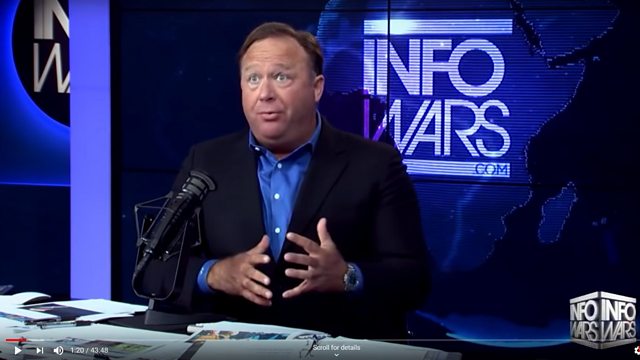Youtube: Cracking down on crackpots
What does the video-sharing site needs to do in order to stop inadvertently promoting dangerous conspiracy theories and extremist content?
What does the video-sharing site needs to do in order to stop inadvertently promoting dangerous conspiracy theories and extremist content?
Alex Jones's InfoWars channel (pictured) - which among other things propagated the lie that the Sandy Hook school shooting in the US was faked - has already been banned from YouTube, although his videos still find their way onto the site. Meanwhile the social media platform has also been clamping down on the vaccination conspiracists blamed for causing the current measles epidemic, as well as the far right extremists said to have inspired terrorists such as the New Zealand mosque shooter.
But is the tougher curating of content enough? Or does YouTube's very business model depend on the promotion of sensationalism and extremism by its algorithms? Ed Butler speaks to Mike Caulfield of the American Democracy Project, former Youtube engineer Guillaume Chaslot, and Joan Donovan, who researches the Alt Right at Harvard.
(Picture: Screenshot of an Alex Jones InfoWars video on YouTube, taken on 29 April 2019, despite the banning of his channel by YouTube)
Last on
More episodes
Previous
Broadcasts
- Mon 29 Apr 2019 07:32GMT大象传媒 World Service
- Mon 29 Apr 2019 12:32GMT大象传媒 World Service News Internet
Podcast
-
![]()
Business Daily
The daily drama of money and work from the 大象传媒.


